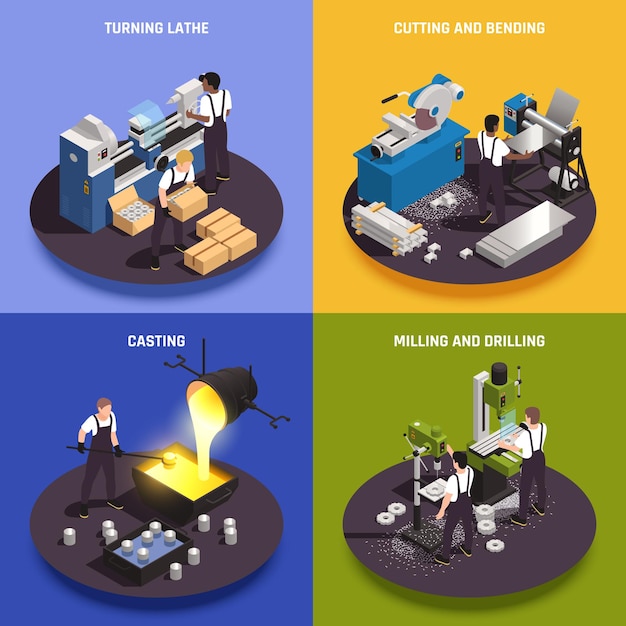Machinery Manufacturing SMEs: Powering India’s Industrial Engine

The MSME sector, comprising around 63.4 million units, contributes approximately 30% to India’s GDP and provides employment to about 111 million people. Specifically, the manufacturing segment of MSMEs contributes about 7% to the GDP. Manufacturing exports reached a record $447.46 billion in FY23, underscoring the global competitiveness of Indian manufacturing.
Machinery manufacturing SMEs are vital to India’s economic framework, driving growth across various sectors. From plastics and chemicals to textiles, pharmaceuticals, automotive, and agriculture, these enterprises ensure seamless operations and productivity enhancements across industries. These enterprises are not just boosting the GDP; they are fostering innovation, creating employment, and driving India’s ambitions of becoming a global manufacturing hub.
Take, for instance, the bustling industrial area of Rajkot in Gujarat. Here, small-scale manufacturers produce everything from CNC machines to textile equipment, catering to both domestic and international markets. Similarly, in the outskirts of Pune, there exists a vibrant SME auto components cluster as well as SMEs crafting specialized machinery for the pharmaceutical industry, playing a crucial role in India’s mobility and drug manufacturing capabilities respectively.
The versatility of these SMEs is their strength. In the plastics industry, they produce essential machinery like small-scale injection molding machines and extrusion equipment. For the chemical sector, they provide specialized equipment for small and medium-sized plants. In textiles, they manufacture a range of machinery from spinning and weaving equipment to dyeing and finishing machinery. The automotive industry relies on them for various tools, dies, and specialized machinery, while the agricultural sector benefits from their production of implements and machinery that support farm mechanization efforts across India.
Pharmaceutical manufacturing, a critical component of India’s industrial landscape, relies on precise machinery from SMEs for drug production and medical device manufacturing. These machines ensure compliance with stringent quality standards, thereby promoting trust in Indian pharmaceutical products globally.
The agricultural sector benefits immensely from machinery manufacturing SMEs that produce tractors, harvesters, and other essential equipment. These machines enhance agricultural productivity and efficiency, helping farmers maximize their yield.
Bumpy Ride
Despite their significant contributions, machinery manufacturing SMEs face several challenges. Many struggle to adopt advanced manufacturing technologies due to high costs and limited access to finance. The skill gap is another significant hurdle, with SMEs often facing difficulties in finding and retaining workers capable of operating advanced machinery. Market access remains a concern, with many SMEs struggling to reach larger markets and compete with established players.
To fully harness the potential of SMEs, continued focus on technology upgradation, skill development, and easier access to finance and markets will be crucial. The government’s Credit Linked Capital Subsidy Scheme (CLCSS) is a step in the right direction, helping SMEs upgrade their technology. Collaboration with local ITIs and polytechnics to develop tailored training programs could address the skill gap.
The Budget Boost
Financial constraints are a major hurdle, with high initial investment costs and limited access to credit. Government initiatives like the Credit Guarantee Fund Scheme for Micro and Small Enterprises (CGS) and the Emergency Credit Line Guarantee Scheme (ECLGS) are instrumental in providing much-needed financial support to these SMEs.
The Union Budget 2024-25 has introduced a Credit Guarantee Scheme for MSMEs in the manufacturing sector. This scheme facilitates term loans for purchasing machinery and equipment without requiring collateral or third-party guarantees. By pooling credit risks of such MSMEs, a self-financing guarantee fund will provide guarantee cover up to Rs 100 crore per applicant, while the loan amount may be larger. Borrowers will need to provide an upfront guarantee fee and an annual guarantee fee on the reducing loan balance. This initiative aims to alleviate financial constraints and boost investment in advanced machinery.
Automation and Innovation
Despite several obstacles, the spirit of innovation thrives in this sector. Many machinery manufacturing SMEs are at the forefront of incorporating new technologies into their products. Some are integrating IoT capabilities into their machinery, enabling predictive maintenance and real-time monitoring. Others are adopting 3D printing technology, allowing them to produce complex components and prototypes more efficiently. The more advanced SMEs are even experimenting with AI and machine learning for quality control and process optimization in their machinery.
The transition towards Industry 4.0 and the forthcoming Industry 5.0, which emphasize human-centric automation and advanced manufacturing techniques, requires continuous investment in new machinery and training. By embracing robotics and automation, SMEs can significantly enhance their production capabilities and maintain competitiveness.
Support by Industry Bodies
Navigating regulatory compliance can also be complex for SMEs. Industry bodies like the Indian Machine Tool Manufacturers’ Association (IMTMA), All-India Agricultural Machinery Manufacturers’ Association (AMMA-India), the Process Plant and Machinery Association of India (PPMAI), and the Indian Pharma Machinery Manufacturers’ Association (IPMMA) provide invaluable support, helping SMEs comply with regulations and stay competitive. They advocate for SME-friendly policies, facilitate knowledge sharing, and help their members navigate the complex business landscape.
The future of machinery manufacturing SMEs in India looks promising, driven by global aspirations of Indian SMEs. The push for import substitution is likely to create more opportunities for local machinery manufacturers. Moreover, the growing emphasis on sustainability is driving demand for energy-efficient and environmentally friendly machinery, an area where innovative SMEs can excel.
As India strides towards its goal of becoming a $5 trillion economy, the role of machinery manufacturing SMEs cannot be overstated. These enterprises are not just producing machines; they’re crafting the tools that will shape India’s industrial future. By nurturing these SMEs, India can strengthen its position in the global machinery manufacturing landscape while supporting the growth of its diverse industrial sectors. The success of these small giants could very well be the key to India’s big manufacturing dreams.





